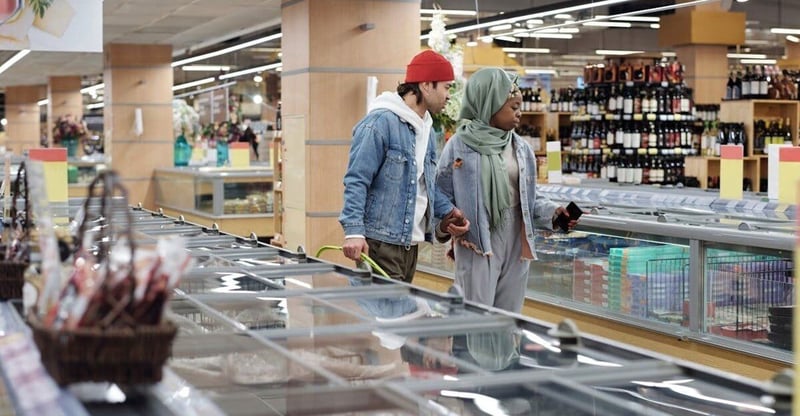Africa's Future In Food Security Relies ON Cooling Infrastructure
Written by: BizCommunity Editor Save to Instapaper
The issue of food security was in the spotlight recently as Agriculture Minister John Steenhuisen delivered a stark warning at the Nutrition for Growth (N4G) Summit in Paris.
In response to the sudden drop in global humanitarian aid, he urged: “We need to become far more resilient.”
In 2024, the US committed $577m through USAID programme, Feed the Future, to promote food security and agricultural growth in sub-Saharan Africa.
However, Trump’s sudden freeze on foreign aid has put these efforts at risk, raising concerns about worsening food insecurity across the region.
While South Africa is not directly dependent on foreign food aid – receiving less than 0.3% of GDP in the form of aid – it is not insulated from the consequences.
Rising hunger in neighbouring countries, compounded by infrastructure challenges and climate shocks, is already contributing to migration, stock and crop theft, and broader regional instability.
Africa’s cold chain infrastructure
Yet one critical issue remains largely overlooked: the fragility of Africa’s cold chain infrastructure. In sub-Saharan Africa, 37% of food is wasted before it even reaches the market.
These losses are not just economic setbacks; they directly impact food availability and affordability, hitting vulnerable communities the hardest.
In addition to cutting back on food aid, the US government has also dismantled Power Africa, an initiative designed to expand electricity access for households, farms, health providers, and businesses.
According to the International Energy Agency (IEA), 57% of household in Africa do not have access to power. Considering the direct link between energy access and food security – particularly for cold storage, irrigation, and food processing – the loss of this support will have far-reaching consequences for the continent’s already strained food supply chain.
The role of industrial cooling in building resilience
Addressing Africa’s cold chain gaps won’t solve food insecurity overnight, but it is a critical enabler. This is especially true in sectors like agriculture, food processing, and retail, where temperature control determines whether food gets to market or goes to waste.
Cold chain infrastructure is also key to regional trade. As foreign aid declines, the ability to store and transport food reliably within Africa will help ensure that regional surpluses are directed to the areas of greatest need.
This will not only prevent food shortages but also limit mass migration and avoid resource-driven conflict.
Cooling-as-a-Service (CaaS) is emerging as a game-changing solution, enabling manufacturers and farmers to access cleaner, more efficient cooling systems without the high upfront costs.
Long-term partnerships between service providers and food producers are reducing the financial burden on businesses while ensuring uptime, technical optimisation, and efficient energy use. These models are de-risking operations and making it possible to strengthen local food systems, especially in underserved areas.
CaaS is currently being adopted throughout the continent, mushrooming in countries like Kenya, Nigeria, Rwanda and South Africa as an effective mechanism to provide access to efficient cooling at scale.
Rethinking food security through infrastructure
If the N4G summit made one thing clear, it’s that in this new era, resilience must come from within, and infrastructure is a vital part of the food security equation.
Strengthening Africa’s cold chain will require collaboration across governments, the private sector, and development partners. It will require smart investment, innovation, and a shift in thinking about how we enable producers to access the infrastructure they need to grow, store, and distribute food safely and efficiently.
Food security is not just about how much we grow, It’s about how well we protect and distribute what we produce.
We submit and automate press releases distribution for a range of clients. Our platform brings in automation to 5 social media platforms with engaging hashtags. Our new platform The Pulse, allows premium PR Agencies to have access to our newsletter subscribers.
Latest from
- Seven Reasons Smart Consumers Prefer Brands That Educate Rather Than Push Products or Hard-Sell
- Youth in Oil and Gas Summit Sparks Call for Pragmatic Leadership to Drive Skills and Opportunity in Namibia
- African Energy Chamber Advocates for Youth Inclusion as Pillar of Namibia’s Oil and Gas Strategy
- Shark Exhibition Showcases Innovative Solutions to Protect Both Marine Life and Human Safety in SA Waters
- Domain Parking Demystified A Strategic Tool for Brand Protection and Future Online Growth
- Toyota South Africa and Kaizer Chiefs Turn Sponsorship Into Impact With Outreach to Ethelbert Centre
- Woolworths Becomes First SA Retailer to Offer Tailored Health Cover to Thousands of Employees
- Celebrating PR With Purpose A Tribute to Storytellers Who Place Humanity at the Heart of Influence
- Tired of the Grind? Why So Many South Africans Are Unhappy at Work and Looking for Something Better
- Megapro Appoints Marc Jury as CEO as Sports Marketing Veteran Prepares to Become Majority Shareholder
- Glencore-Merafe Resources Commits to Sustainable Impact With Handover of 11 Community Projects
- The Business Show Africa 2025 Promises Game-Changing Opportunities for Entrepreneurs and Startups
- Flow Launches Shoppable Audience Marketplace Giving Advertisers Instant Access to Premium First-Party Data
- CILTSA ESG Conference Unites Transport and Logistics Leaders to Accelerate Sustainable Industry Change
- South Africa Continues TO Engage The United States (US) Government ON The Reciprocal Tariffs
The Pulse Latest Articles
- Xlink: An Avant-garde, Purpose-driven Fintelco Driving Digital And Payments Interoperability On The African Continent (August 1, 2025)
- Success Is Just The Beginning For This South African Brand (July 31, 2025)
- Embassies Business Fair And Conference 2025 To Fast-track Africa’s Global Economic Integration (July 31, 2025)
- There Is A Small Business Funding Readiness Crisis In South Africa (July 30, 2025)
- Young Achievers Shine At The Top Of The Growthpoint Gems Class (July 30, 2025)
